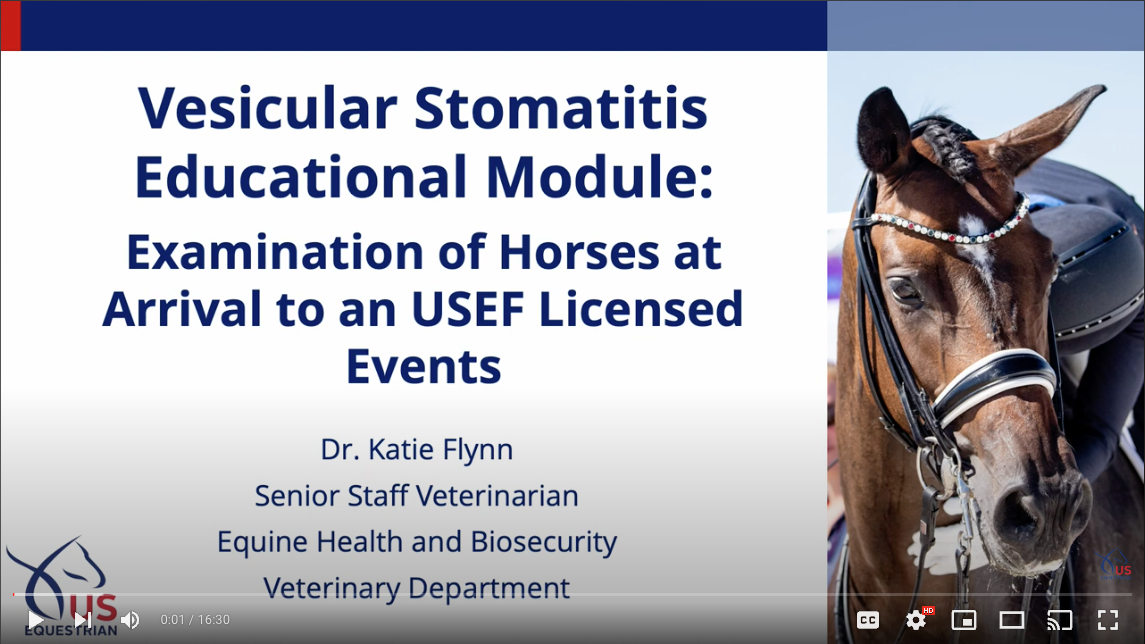
ALERT VESICULAR STOMATITIS
AS OF FEBRUARY 18, 2024 THE UNITED STATES HAS BEEN DECLARED FREE OF VESICULAR STOMATITIS
Click here for the complete USDA Vesicular Stomatitis Situation Report.
Vesicular stomatitis (VS) is a viral disease of horses and other animals. Infection results in vesicles (blisters), crusts, and ulceration of the lips, muzzle, nose, tongue, ears, sheath, teats, and/or coronary band. Transmission is predominantly by black flies, sand flies, and biting midges. The virus is in the active lesion, thus animals with active lesions can transmit the virus by direct contact, shared feed/water sources, and other carriers contaminated by infective lesions, vesicular fluid, and/or saliva. The lesions are self-limiting and typically resolve within 14 days. Humans can be infected from exposure to this virus and have mild flu-like symptoms.
As of Februar 18, 2024, the USEF has no requirements or restrictions related to Vesicular Stomatitis.
Vesicular Stomatitis (VS) Frequently Asked Questions
Fly Prevention Important Notes
How To Get Rid of Flies - Article from US Equestrian Magazine on premise-based fly control, as well as some information from UltraShield on fly spray tips for use on horses.
Fighting Flies - Article from US Equestrian Magazine that looks at the future technology of fly prevention, but also includes good information about fly spray and proper use.

Manure left around your barn area and pastures can create a breeding ground for flies. By removing manure regularly and consistently, you promote faster drying of the remaining ground which can reduce the number of flies on your property. A John Deere Compact Tractor, Materials Bucket and Manure Spreader, make a great package for keeping your barn clean and reducing pests.


